Beacon refers Medicaid patients out to nonprofit clinics as hospitals fight rising costs
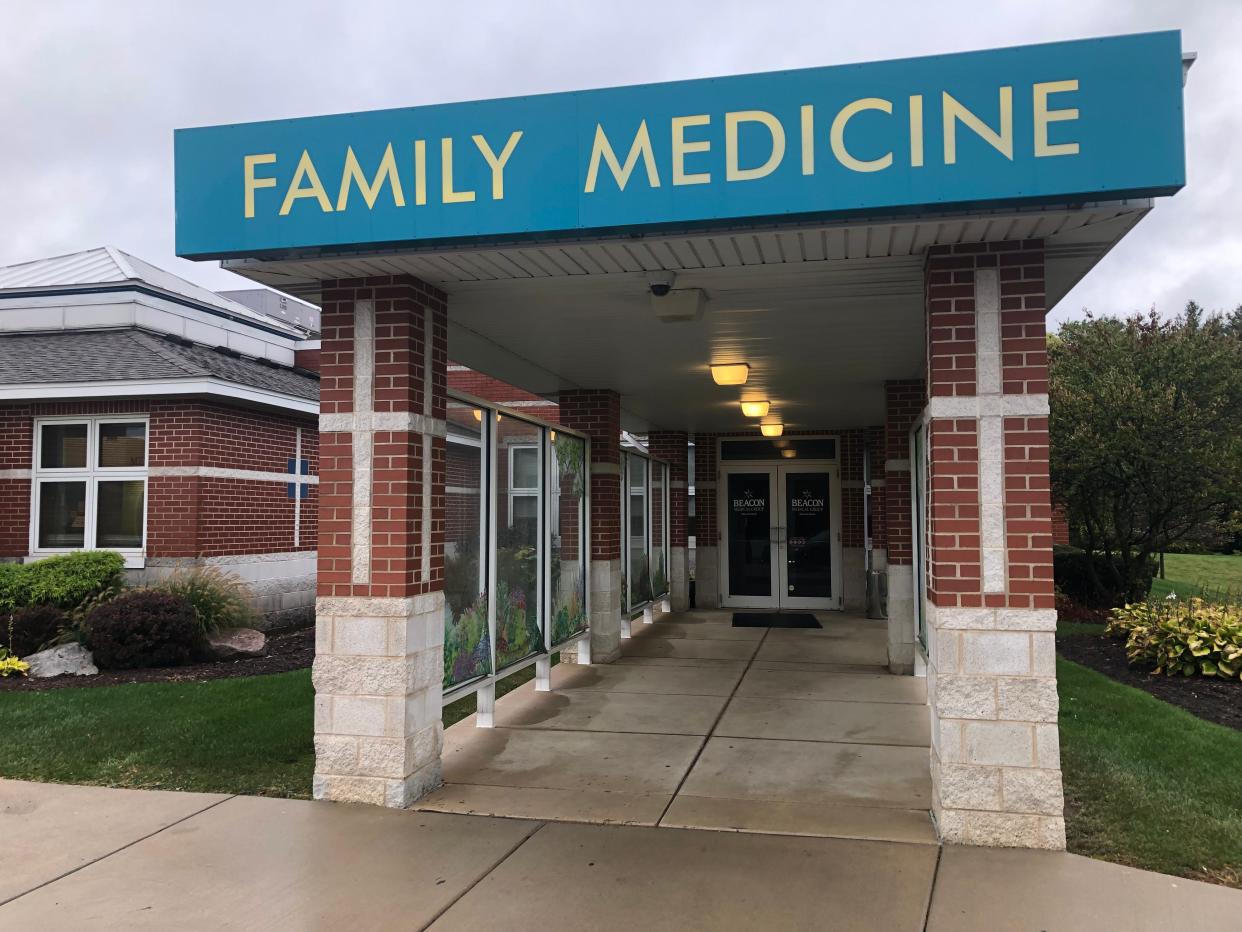
Beacon Health System is shedding hundreds of its Medicaid clients at some of its primary care practices in St. Joseph, Elkhart and LaPorte counties as it tries to rein in costs that spiked in the wake of the pandemic.
Many of the patients are being referred to doctors at clinics outside of Beacon, including the nonprofit HealthLinc and Heart City Health, that offer broader ranges of health services.
Some other hospital systems in Indiana are taking the same tactic.
Brian Tabor, president of the Indiana Hospital Association, said this points to a larger issue with Medicaid reimbursements from the state that have remained “essentially flat.”
He said the state’s base rate for Medicaid for hospitals hasn’t changed in 30 years, and it now covers 57 cents of every dollar of expense, compared with 87 cents from Medicare.
“That’s not sustainable,” he said.
But some critics question whether Indiana hospitals are already charging too much.
It’s an issue Tabor hopes state legislators take on next year. Medicaid is a state- and federally financed insurance program for people with low income.
For Debby Applegate of South Bend, the situation has sparked confusion. She first heard about the change from a friend who likewise had to seek a new doctor. Then Applegate confirmed it at Beacon’s Ireland Road clinic, where she uses Medicaid.
Concerned for herself and the people she helps at the nonprofit Michiana Five for the Homeless, she called different offices at Beacon and got different answers about when Medicaid coverage would end and which Beacon services would be affected. They also didn’t jibe with what she’d heard from two insurance companies that carry the Medicaid program Healthy Indiana Plan.
“Everywhere you turn is a different answer,” she said.
South Bend city council member and fellow advocate for the homeless, Lori Hamann, too, felt unsettled by incomplete answers she'd gotten from Beacon's billing office about care for her son, who's on the Healthy Indiana Plan.
"Why are providers' offices telling so many conflicting stories?" Hamann said on Oct. 5. "By being so secretive, Beacon is not allowing people time to arrange other health care."
In a written statement, Beacon spokeswoman Heidi Prescott told The Tribune, “A small number of our Beacon Medical Group primary care practices in St. Joseph, Elkhart and LaPorte counties have partnered with and transitioned patients to Federally Qualified Health Centers, including HealthLinc and Heart City Health.”
Prescott said the transition “ensures patients are receiving the most comprehensive, high-quality care.”
Indiana Rep. Maureen Bauer, D-South Bend, acknowledged the confusion, saying she's heard from Applegate though not many others. Bauer said she reached out to a Beacon executive, who told her that the Medicaid shift affects seven of its primary care practices.
A graphic she received from Beacon lists the health centers on Cleveland and on Ireland roads in South Bend and on Main Street in Granger as being affected, along with centers in LaPorte, in Bristol and on County Road 6 in Elkhart.
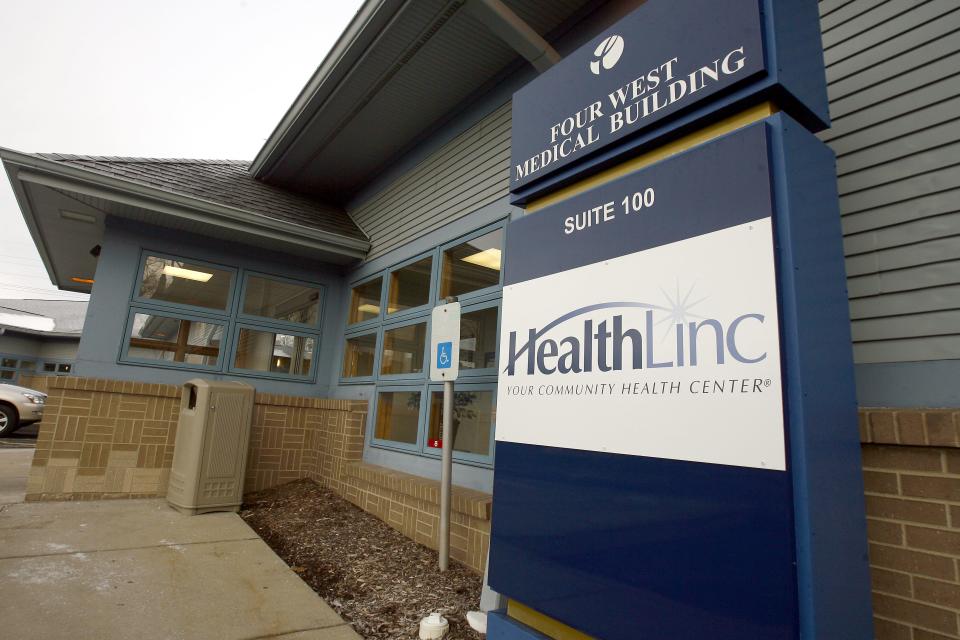
Moved to clinics with more services
Federally Qualified Health Centers are clinics and health centers for people who are medically underserved because of factors like their neighborhood or income. These nonprofits receive a certain level of government funding to ensure it. Patients pay a sliding scale fee based on what they can afford.
HealthLinc CEO Beth Wrobel said her clinics took on referrals of about 400 Medicaid patients from Beacon in St. Joseph County in a process that started back in May.
“It’s a good thing,” she said, for patients’ sake.
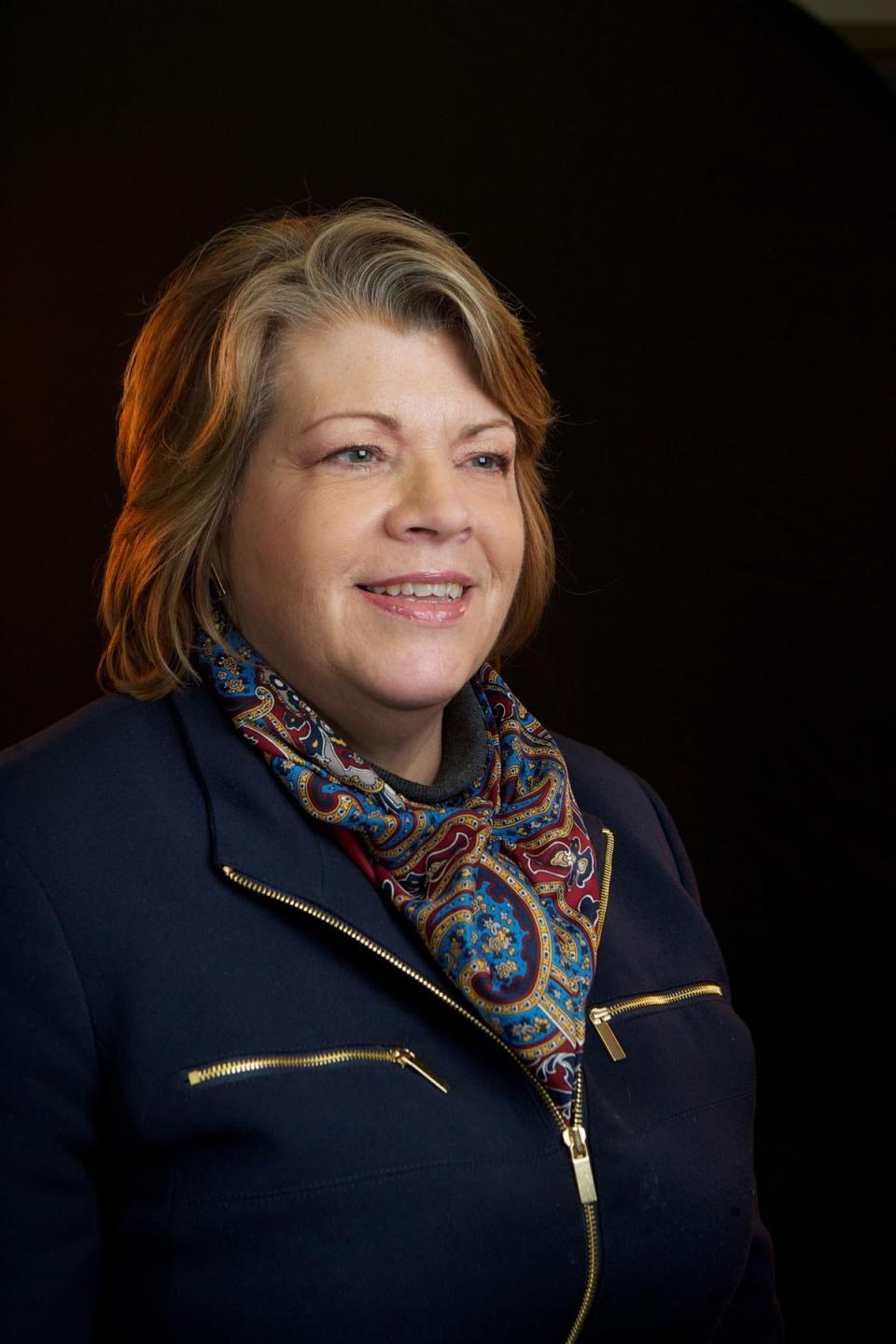
Like other Federally Qualified Health Centers, she said, HealthLinc clinics provide better care than a solitary doctor because they offer an array of other services under one roof, including a dentist, mental health care, an attorney from Indiana Legal Services (for lost drivers licenses while in recovery and many other issues) and screening for homelessness and other risk factors that affect health.
HealthLinc had room for the extra patients, Wrobel said, with five clinics in St. Joseph County and nine others in LaPorte, Lake, Porter and Starke counties that, collectively, served a total of about 42,000 patients last year. The clinics in St. Joseph County recently added two nurse practitioners and a doctor.
Granted, she noted, patients still have the freedom to take their Medicaid where they wish and where it’s accepted. HealthLinc had to call multiple times to connect with some Beacon patients, she said, acknowledging that patients don’t like giving up a good relationship with a doctor.
“We have to build their trust,” she said.
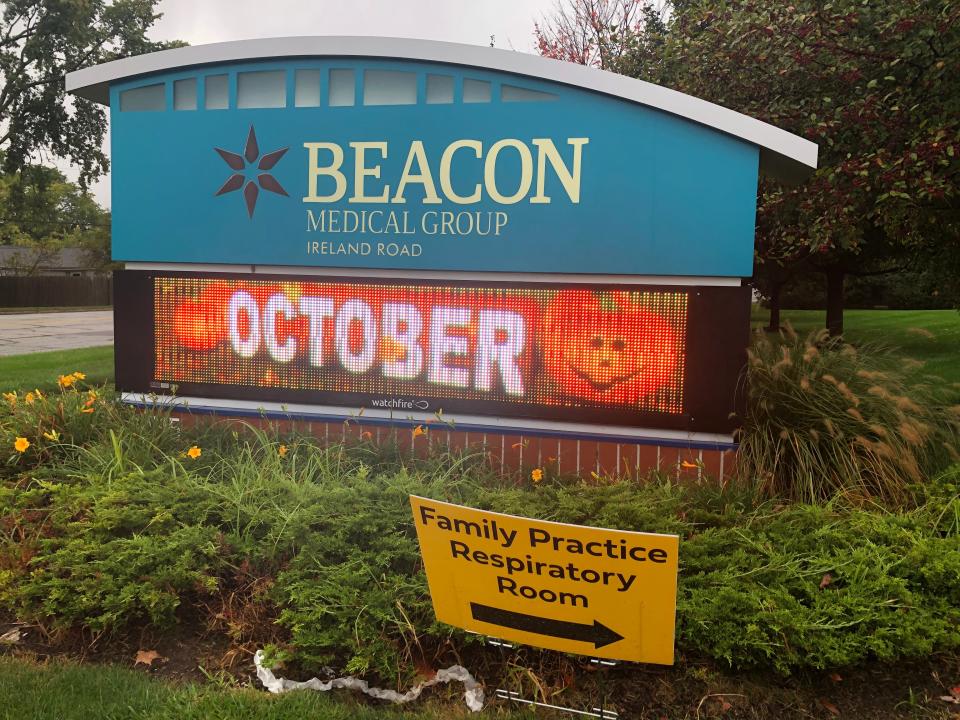
Where and when would Medicaid end?
Prescott said that Beacon also brought many of its Medicaid patients into its Memorial Hospital Family Practice Residency Program, which is based out of Beacon’s E. Blair Warner Family Medicine Center in downtown South Bend.
The Tribune’s random calls in recent weeks to the E. Blair Warner center staff got varied responses as to whether Medicaid would be accepted or not. But Prescott affirmed that the E. Blair Warner center will continue to accept Medicaid.
"Caring for more than two-thirds of Medicaid patients in the region,” Prescott said, “Beacon Health System remains the largest provider of care to the region’s underserved and poor."
The shift in Medicaid coverage, she said, doesn’t affect care in Beacon’s hospitals or in its specialty practices. Also, no additional primary care practices will be affected.
The Tribune asked how many patients are affected, whether there’s a deadline or timeline for the change and whether patients would get a letter informing them.
To those questions, Prescott only replied, “All affected Medicaid patients will be communicated with about this change.”
Applegate said she’d heard from her doctor’s office — including a sign in the Ireland Road health center — that Medicaid coverage there would stop after Oct. 31. When she called Managed Health Services (MHS), the carrier of her Medicaid, they said that, too.
She'd been told to expect a letter to confirm it. After waiting and wondering who her next primary care doctor would be, she received a letter from Beacon on Oct. 6, dated Oct. 1, that provides a list of local HealthLinc clinics as suggestions. The letter states that she'd need to secure a new provider as of Oct. 1 but that she could still come to the Ireland Road center for emergency care until Oct. 31.
She’s been thinking of clients at Michiana Five for the Homeless, where she’s director, and how many of them don’t have an address. Some receive mail through the outreach services at Broadway Christian Parish in South Bend.
As time lingered, she'd said, “They’ve got to let people know.”
Representatives that serve the needy at Broadway, St. Margaret’s House, the Center for the Homeless and the county health department say that, so far, they haven’t heard a lot of concerns so far from their clients. But some concerned local doctors have been trying to figure out the impact of the changes.
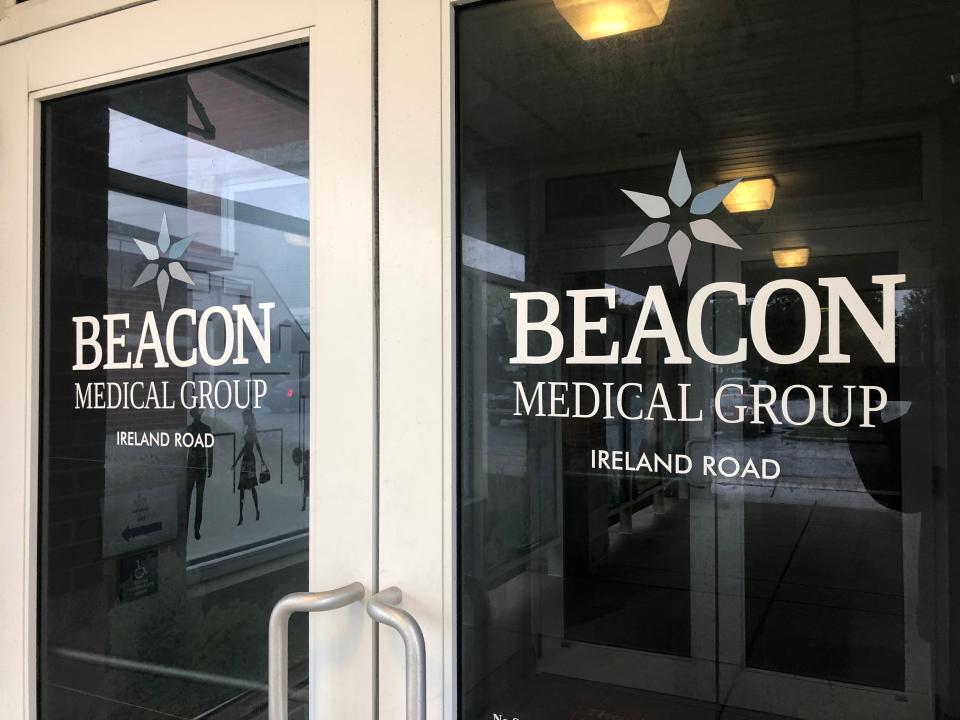
Applegate first became aware of the change in July after a friend of hers received a letter from Anthem Blue Cross and Blue Shield, a major carrier of Medicaid, saying that her friend’s Beacon doctor was no longer in its system. Anthem referred the friend to another Beacon doctor. The letter said that the patient may be able to continue with the same doctor if the patient has a severe illness or condition or is in the second or third trimester of pregnancy.
The Tribune obtained a letter dated Oct. 4 from Beacon Medical Group President Dr. Dale Patterson to its medical team. It confirms the issues with Medicaid reimbursements and states: "I understand that this decision will end trusting relationships between physicians and patients, many of which are very personal and years long. I anticipate that this will be emotional for many, and I apologize to both the patients and providers impacted. ... We want the affected patients to experience a smooth transition as they move to new primary care providers through our area FQHC's."
Hospital costs on the rise
Tabor, with the Indiana Hospital Association, said that Indiana hospitals on average saw a 2% operating loss last year because of spiraling costs.
He explained that federal relief helped hospitals to weather the demands of the pandemic, adding, “Hospitals would not have made it without that.”
But, as time waned, he said early 2022 proved intense with labor shortages from a loss of burned-out medical staff. Costs rose “astronomically,” he said, including for labor and drugs.
The number of Medicaid patients in Indiana rose from 1.4 million before the pandemic to about 2 million as of two months ago, Tabor said. That number is expected to drop as more people leave the Medicaid roles since they no longer qualify. The feds had previously allowed them to stay on Medicaid longer after their income rose as a pandemic protection, but that is ending.
Because of financial losses, Tabor said, small rural hospitals in northeast and southwest Indiana closed and some hospitals have reduced their services.
He said hospitals will still treat everyone who comes into their emergency rooms, but overall, they cannot care for everyone.
“A hospital has to ensure that it can keep its doors open,” he said.
The Indiana Hospital Association pushed Indiana state legislators this year for higher reimbursements. Some rates for dentists and physicians are set to rise in January. Increases for hospitals may be considered in the next budget bill in 2025. Since “that is too long to wait,” Tabor said, the IHA is hoping legislators seek action in 2024.
Bauer said Beacon testified to legislators for higher reimbursements earlier this year. She agrees, saying that it's "long overdue" and that "hospitals are struggling."
House Bill 1004 passed this year, creating a task force to examine rising costs at hospitals, but, as WVPE reported, IHA got a provision added to also compare Indiana’s Medicaid rates with other states. Meanwhile, the Medicaid Oversight Committee is reconvening soon, partly to address reimbursements.
A critic of rising hospital costs and their plight, Ball State University economist Michael Hicks said that, late this summer, he testified before the new Health Care Cost Oversight Task Force that “Hoosiers pay 34% more than residents of the average state.”
Likewise, he argued that Indiana’s Medicaid reimbursements per recipient are only 0.07% lower than the national average.
“The turbulence of COVID made Indiana’s hospitals stunningly profitable, then as the disease receded, their profits dropped,” Hicks told The Tribune. “I have no doubt many face a difficult period of adjustment. But the savings they’ve accrued over the past decade is so extraordinary that they’ll be fine.”
On the Form 990 that it filed with the Internal Revenue Service, Beacon showed a profit with about $184 million in revenue versus $145 expenses in 2021, but a loss in 2020 with $120 million in revenue versus $124 million in expenses. In 2019, it showed a profit with $138 million in revenue versus $106 million in expenses.
Still more capacity
Beacon hasn’t officially reached out to Indiana Health Centers to transfer patients to its three clinics in South Bend, but its statewide CEO, Ann Lundy, said, “We absolutely have capacity to see these patients.”
It, too, is a Federally Qualified Health Center. As for the 400 that HealthLinc took on, Lundy said: “We wouldn’t even blink an eye at that. We could handle that and more.”
She welcomes Beacon to send referrals and encourages anyone in need to seek out Indiana Health Centers, which can take same-day walk-ins and can even help patients with transportation to the clinic.
“We are so concerned about people going unnecessarily to the emergency room,” Lundy said.
South Bend Tribune reporter Joseph Dits can be reached at 574-235-6158 or jdits@sbtinfo.com.
This article originally appeared on South Bend Tribune: Beacon Medical Group shifts Medicaid patients to clinics HealthLinc

